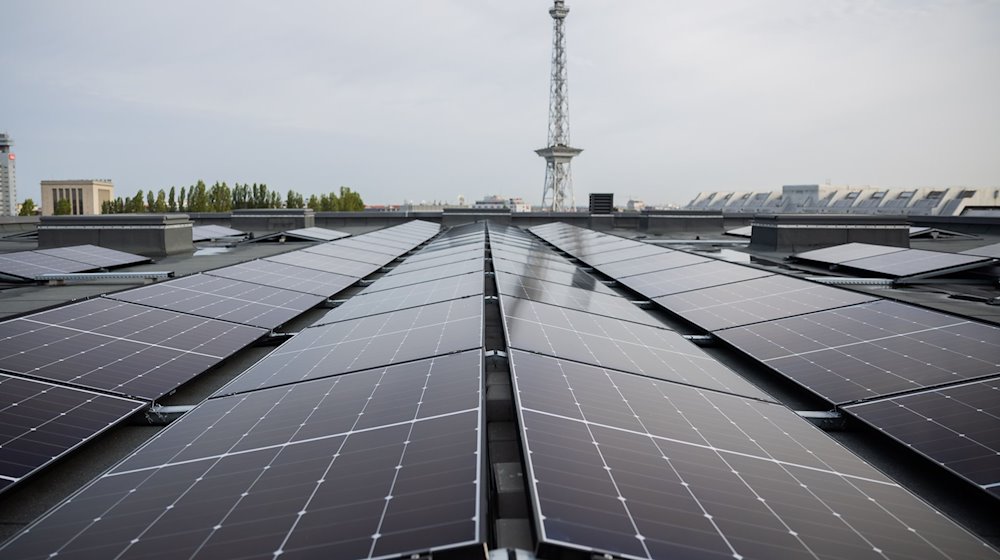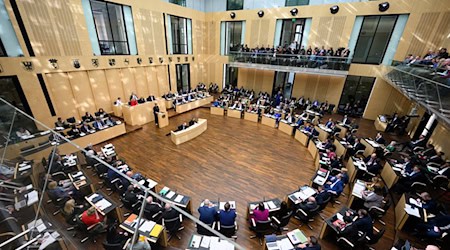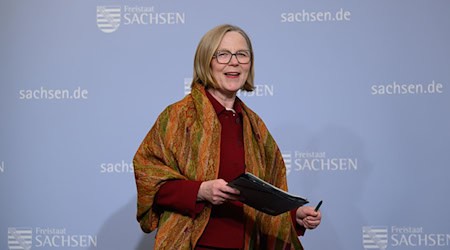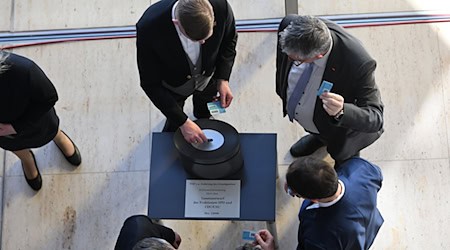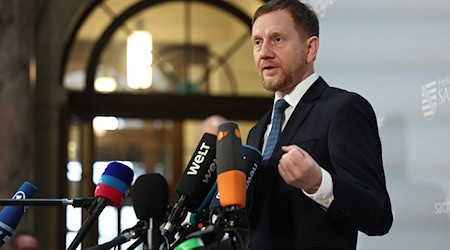The planned billion-euro special fund for more climate protection in Berlin is on the brink of collapse. According to the Deutsche Presse-Agentur, an external report commissioned by the financial administration has come to the conclusion that the plans of the black-red coalition cannot be implemented in their current form. According to the House of Representatives, new ways must now be found to finance climate protection measures on a large scale. The "Berliner Morgenpost" first reported on Friday.
Special fund should enable five million additional debts
Originally, Finance Senator Stefan Evers (CDU) and the coalition wanted to set up a special fund of at least five billion euros in order to realize massive additional investments in climate protection, for example in building renovation or the conversion of the energy supply. The program, which is to be financed outside of the state budget, is to be financed through loans. The reason given for the necessity of these loans despite the debt brake was to explain an emergency situation against the backdrop of climate change and the challenges posed by the war in Ukraine.
The program, which was supposed to run for several years in total, should have been launched long ago, but was put on hold for the time being in light of the Karlsruhe Constitutional Court ruling on the federal budget. The Senate first wanted to use the report to clarify what impact the ruling on the federal budget would have on the planned special fund. This is now available.
Experts comment on the requirements for an emergency situation
As dpa learned from the House of Representatives, experts from a law firm doubt that the planned procedure is compatible with the principle of annuality, which the Federal Constitutional Court had also pointed out. In other words: programs that have a term of one year, like a budget, are okay, but longer terms are not.
In addition, the experts reportedly point out that a climate emergency is probably not sufficient justification for taking out new loans. The war in Ukraine and efforts to reduce dependence on fossil fuels in times of sharply rising energy prices are more likely to be considered. However, there is also the problem of annuality here, as investment projects with this thrust usually take longer than a year.
What happens next politically remains to be seen. Next Wednesday (28 February), the report is to be discussed in the main committee of the Berlin House of Representatives. Within the coalition, it is assumed that loans for climate protection can be taken out despite the experts' opinion. One possibility could be to do this via state-owned companies for certain projects.
Black-Red faces new challenges
However, it also seems clear that a sum of five billion euros is a long way off and that money will have to be saved elsewhere in the current budget in order to free it up for climate protection. How this is to be achieved is questionable. In the current 2024/2025 state budget, there is already a blanket target of saving 1.7 billion euros a year (global underspending). However, this has not yet been backed up by concrete measures.
"Our climate and energy policy investments remain correct, our serious government action continues," said CDU parliamentary group leader Dirk Stettner on Friday. The results of the report will now be seriously evaluated and the main committee will also hold an expert hearing in March. "On the basis of the report, we will secure ways and means for the necessary investments for the future of the city."
Greens: Central project of the government has failed
Greens parliamentary group leader Bettina Jarasch explained the results of the report: "This means that a central project of this coalition has failed, which would even have been supported by the democratic opposition." However, it is clear that the major tasks in climate protection still require considerable additional financial resources. "Now that it is clear that the special fund can no longer be legally implemented, an alternative plan for financing climate protection is urgently needed," demanded Jarasch.
The leaders of the Left Party parliamentary group, Anne Helm and Carsten Schatz, called for the Senate to quickly enter into a discussion with the democratic parliamentary groups on how the necessary investments could be financed as an alternative.
AfD sees itself confirmed
The AfD parliamentary group leader Kristin Brinker pointed out that a report commissioned by her parliamentary group from the Parliamentary Research Service had already shown in November 2023 that the special climate fund was unlawful. "The Senate must organize the missing funds in a serious manner," demanded Brinker. "But one thing is certain: no state-owned companies with exorbitant loans should be misused as shadow budgets." In the end, the taxpayer is always liable for this.
In mid-November 2023, the Federal Constitutional Court declared the federal government's second supplementary budget for 2021 unconstitutional and null and void due to a breach of the debt brake exceptions. With the budget amendment, the federal government wanted to invest loans in climate protection that were originally intended for coronavirus measures. The ruling tore a billion-euro hole in the federal budget.
Copyright 2024, dpa (www.dpa.de). All rights reserved

